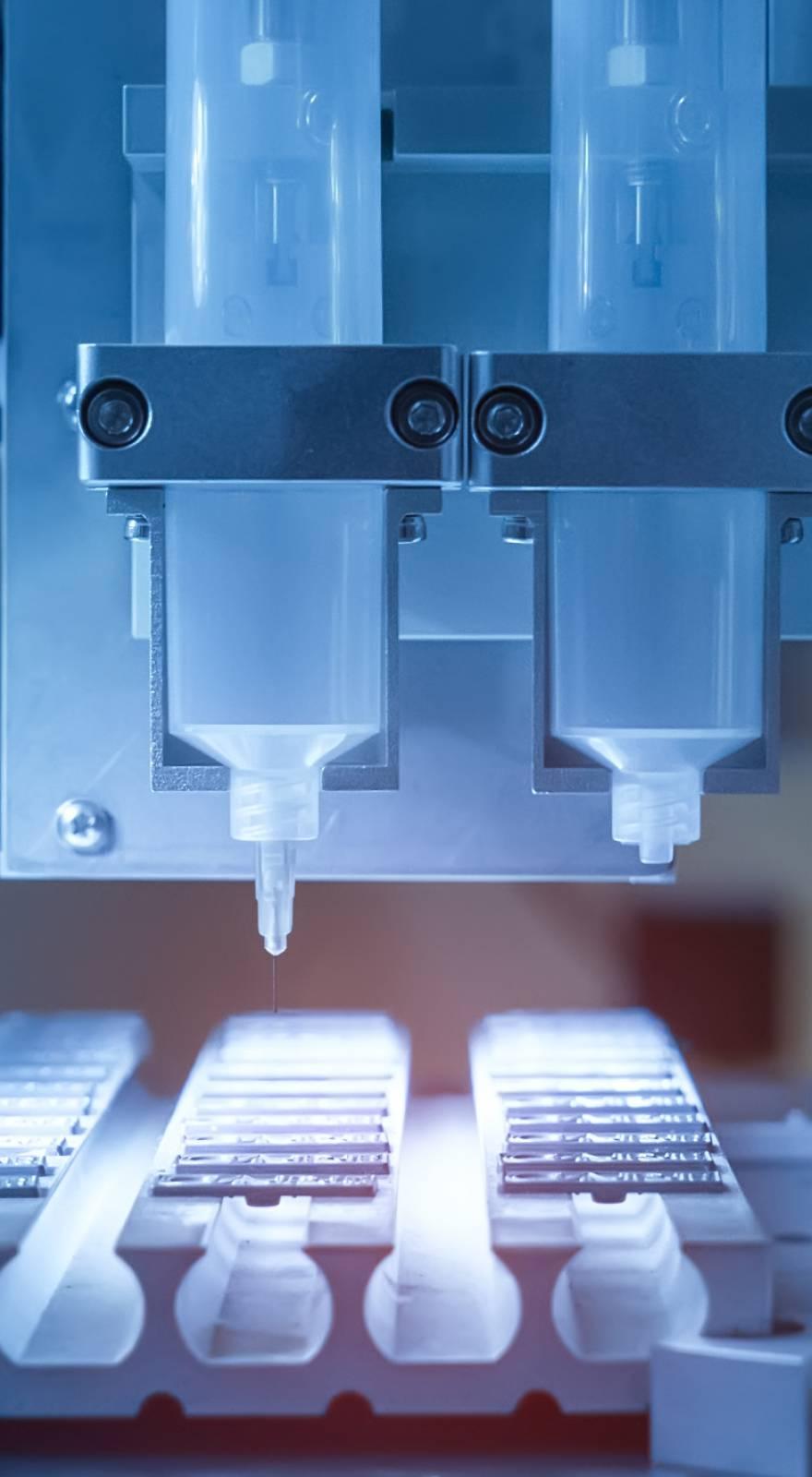Knowde Enhanced TDS
Identification & Functionality
- Product Type
- Technologies
Features & Benefits
- Labeling Claims
- Ready-to-Use Product Features
- Features & Benefits
- UV Resistant – can be used in outdoor or marine application; and resists yellowing or cracking
- Flexible – does not become brittle in cold weather and bonds items subject to vibration
- Chemical Resistant – safe for applications exposed to dilute acids and dilute caustics
- Abrasion Resistant – great for bonding objects subject to normal wear
- Waterproof – can be submerged in fresh and salt water after complete cure
- Paintable – paint to match surrounding area for more uv resistance
Applications & Uses
- Applications
- Compatible Substrates & Surfaces
- Where To Use / Applications
- greenhouse & solarium repairs
- roof flashing & shingles repair
- garden tools
- repair anchor & metal parts exposed to salt and sunlight
- repair brick & mortar and much more
- Chemicals That Have Little Or No Effect On E6800
- Acetic acid (5% and 10%)
- Ammonium hydroxide (3.4%)
- Ammonium nitrate (50%)
- Antifreeze
- Beer (3.2% alcohol by volume)
- Boric acid (3.1%)
- Distilled water
- Hydraulic oil
- Lactic acid (3.8%)
- Milk (fresh, tested at 40 °F)
- Motor oil (30w)
- Nitric acid (10% and 20%)
- Oxalic acid (3.1%)
- Phosphoric acid (30% and 60% as P2O5)
- Potassium hydroxide (3.4%)
- Sodium carbonates (2.7%)
- Sodium chloride (10%)
- Sulfuric acid (3% and 10%)
- Wine (20% alcohol by volume)
E6800 exhibits excellent resistance to water, dilute acids and dilute bases. Thin films of E6800 were immersed in various chemicals for two weeks and exhibited weight gains of less than 2% and tensile strength loss of less than 10%. These chemicals are listed on the left. All percentages are given by weight unless otherwise noted.
- Solvents That Dissolve E6800
- Chevron solvent 1100
- Chlorothane NU
- Cyclohexane
- Gasoline
- Perchloroethylene
- Propyl acetate
- Toluene
These are common solvents that dissolve E6800 when hardened samples were immersed. The dissolution with these solvents was not instantaneous and therefore does not preclude usage in all cases. Applications where an occasional splash or brief exposure is expected may be acceptable. Test a small area before full use.
- Directions And Application Notes
Read directions and test small area before use.
Step 1 Surface should be clean, dry and free of dirt. For best results, lightly roughen surface before use.
Step 2 TUBE: Puncture inner seal using pointer cap (if tube has a foil seal). CARTRIDGE: Trim end of nozzle. Puncture inner seal. Ideal application temperature range is 50 to 90 °F (10 to 32 °C). However, fully cured adhesive can withstand temperatures from 40 to 180 °F (-40 to 82 °C) intermittently.Step 3 Apply directly to surfaces to be bonded or repaired.
Step 4 Allow 24 hours for curing. Depending on materials and temperature, maximum bond strength may not be reached for 48 to 72 hours.
Step 5 TUBE: For future easy cap removal, apply a thin coat of petroleum jelly to the threads of the tube before replacing the cap. CARTRIDGE: For prolonged storage after opening, cover or plug the opening of the nozzle.
Step 6 Clean uncured adhesive with acetone or citrus-based solvents. Cured material may be removed by cutting or scraping.Product is paintable and immediately resistant to precipitation upon application.
Properties
- Typical Properties
| Value | Units | Test Method / Conditions | |
| Application Temperature | 50 - 90 (10 - 32) | °F (°C) | — |
| Chemical Resistance | Excellent to water, dilute acids and dilute bases | — | — |
| Density | 11.0 ± 0.1 | lbs/gal | — |
| Dielectric Strength | max. 400 | V/mil | ASTM D-149 |
| Elongation | 900.0 | % | ASTM D-412 |
| Freeze/Thaw Stability | Stable, allow product to warm to room temperature before using | — | — |
| Full Cure Time | 24 (48 - 72) | hours | — |
| Hardness | 80.0 | Shore A | — |
| Non-Flammable (Uncured Liquid State) | Yes | — | — |
| Paint-Over Time | 24.0 | hours | — |
| Set Time | 20.0 | minutes | — |
| Solids (By Weight, By Volume) | 30 (40) | % | — |
| Solvent | Perchloroethylene | — | — |
| Tack Time | 4.0 | minutes | — |
| Temperature Range | -40 to 180 (-40 to 82) | °F (°C) | — |
| Tensile Strength | 3500.0 | lb/in2 | ASTM D-412 |
| UV Resistance | Yes | — | — |
| Viscosity (Medium) | 1000000.0 | cps | — |
Regulatory & Compliance
- Certifications & Compliance
Technical Details & Test Data
- ADHESION TEST – 180° Peel Strength Test - ASTM D 903
Aluminum Birch (wood) Glass PVC Steel 35 pli 40 pli 34 pli 38 pli 45 pli
Safety & Health
- Health And Safety
This product contains perchloroethylene. Before working with this product, read and become familiar with information concerning hazards, proper use and handling.
Packaging & Availability
- Packaging Type
Storage & Handling
- Shelf Life
- 2 year
- Storage
Product may thicken when stored in colder temperatures. If product thickens from colder temperatures, warm to room temperature before use.

